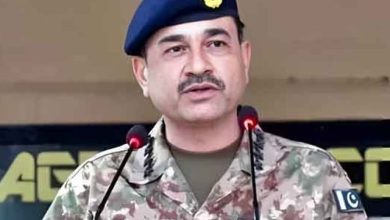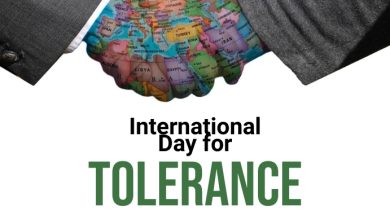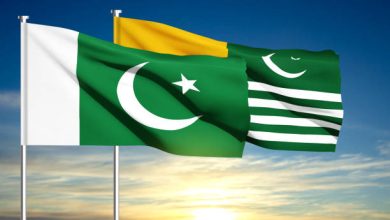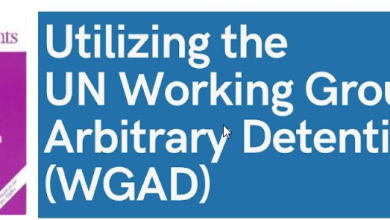Poonch killings re-open old wounds
 Nosheen Khawaja
Nosheen Khawaja
In a grim reminder of the agonies endured by Kashmiris in the 1990s, the recent tragic killings of three civilians in Indian army’s custody in the Poonch region of Jammu and Kashmir, allegedly in retaliation to deaths of four Indian soldiers in an ambush laid by militants, has once again torn open the wounds of the past.
The haunting memories of the brutality inflicted during the 1990s are resurfacing, deepening the pain etched in the collective memory and consciousness of Kashmiris at the hands of the Indian army.
Raja Basharat Khan, now 44 years old, resides as a refugee with his family in one of the camps established for Kashmiri refugees in Chehlabandi near River Neelum, located on the outskirts of Muzaffarabad, haunted by the memories of the brutality his family endured in the early 1990s at the hands of the Indian army.
Originally from a village in Kupwara on the Indian side of the Line of Control (LoC), Basharat Khan, along with his parents and eight siblings, fled their home in November 1990 when he was just a 5th-grade student. Three of his siblings were born in Muzaffarabad.
Basharat Khan in conversation with Kashmir Times told the Kashmir Times, “We left because staying there was no longer safe,” adding that “The Indian army would frequently carry out cordon and search operations on the pretext of searching for militants, both day and night.”
“Indian soldiers would come in hundreds during the night and cordon their village when most people would be in their sleep. “They would order men, women, children, and the elderly to come out and be lined up separately. The assaults on men and women, children, and the elderly were brutal—using gun butts, kicks, fists, and sticks, often in front of their children,” Basharat Khan said.
He would watch his loved ones being humiliated, abused, and assaulted helplessly. “We could do nothing except watch hopelessly. They would hurl the choicest of abuses. If anyone stayed indoors, they would break the door and drag the family out. The Indian army’s accusations ranged from providing shelter and food to militants to labeling our youth as militants,” he said.
Khan recollects that whenever there was an attack against the Indian army, they would cordon off nearby villages and assault everyone, irrespective of their age and gender. This indiscriminate response added to the harrowing experiences faced by the Kashmiri civilians, further highlighting the brutal nature of the conflict.
He vividly remembers going to school under the shadow of fear and guns. “Indian forces would raid schools and colleges, assaulting teachers, accusing them of supporting militants. It was a war against society, not against militants,” Khan added.
The harrowing experience reached its zenith when the Indian army handed a list of 18 boys from Basharat’s village to his father, demanding their surrender. “Among them were my brother and four cousins. With no choice, we handed them over to the Indian army in the presence of the entire village. A gathering was arranged before their handover, where villagers applied antimony (Surma) to their eyes, purchased shroud (Kafan), and made them shower, anticipating the worst,” reveals the Kashmiri refugee.
Blindfolded and placed in Indian army vehicles, the boys were driven away, leaving their families in despair.
“We had no hope of their returning alive. We kept praying for their safe release and had no clue about their whereabouts until they were released,” shares Khan.
Their release after one and a half to three months brought forth tales of torture that continue to haunt them. “They were scalded with hot water, beaten, and had needles pricked into their nails, all under false accusations of being militants. They were students, not militants. The torture signs are still visible on their bodies,” Khan solemnly states.
Days before the family left, Basharat’s father faced a similar fate at the hands of the Indian army. Tortured and then driven to an area close to the LoC with an apparent intention to kill him, a stroke of luck intervened as cross-border fire erupted, allowing him to escape in the ensuing chaos.
“Some local villagers in that area helped him and brought him home. That is when we decided to leave for Muzaffarabad, although the rest of our extended family still lives in our ancestral village,” Basharat says. “We left to save our lives and honour. We left everything behind—our homes, businesses, land, and cattle.”
“Approximately 350 families from their village sought refuge in Pakistan-administered Kashmir, a group that included serving policemen, soldiers, teachers, and students. Shockingly, even some soldiers from the village, who were part of the Indian army, reached Muzaffarabad in uniform,” according to Khan.
Tragically, about 80 boys from their village remain imprisoned in Indian jails, including Basharat’s cousins.
Today, Basharat is married with a wife and four children, living as a refugee in Muzaffarabad. He expressed that the videos surfacing from Poonch depicting the Indian army’s alleged brutality on innocent civilians have left him and his community shattered.
According to him, “such tactics have been employed for decades to create fear psychosis.”
He asserted, “When they (Indian Army) cannot fight against rebels, they vent their anger on civilians. What we suffered is hidden from the world because there was no social media at that time. We suffered silently. No one knows until today about our sufferings. What has now happened in Poonch became international news, thanks to social media,” Khan told the Kashmir Times. “The army is not fighting a war against militants, but it has waged war against the local population,” he added.
The refugee population, which according to the latest figures stands at over 43,000 individuals, or approximately one percent of the population of Pakistan-administered Kashmir, was forced to leave their homes in 1990 because of Indian atrocities. They live in 13 different camps in Pakistan-administered Kashmir.
Basharat Khan and Aurangzeb Khan’s accounts shed light on the profound challenges faced by Kashmiri civilians, caught in the crossfire of conflict. Their tales, unfortunately, are not isolated, reflecting the shared pain of a community where the distinction between the combatants and the civilians blurs amid the ongoing strife.
As the international community turns a blind eye to the plight of Kashmiri refugees who have suffered atrocities, stories like theirs serve as poignant reminders of the enduring trauma endured by those who have borne witness to these first hand.








